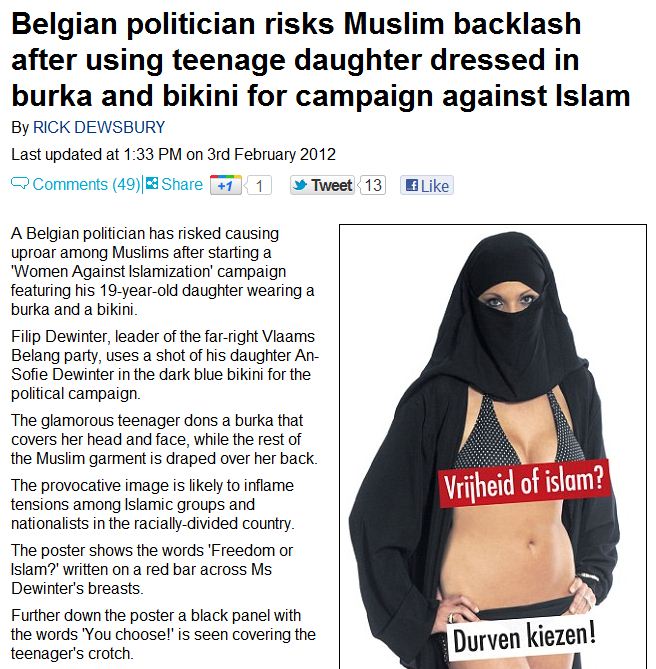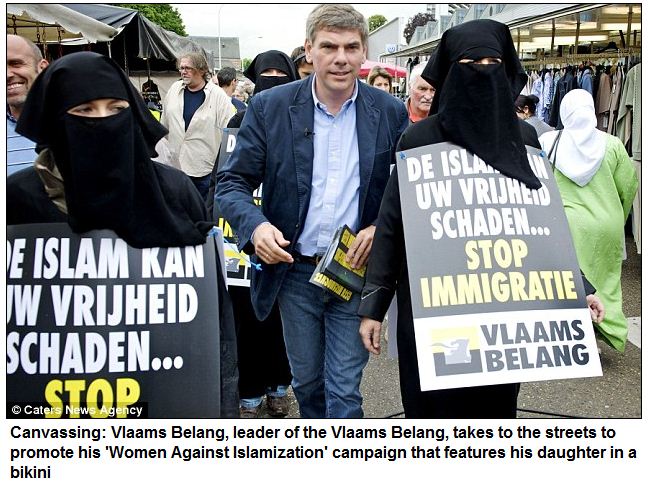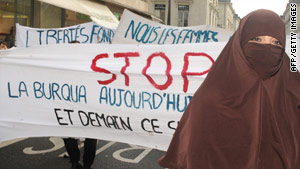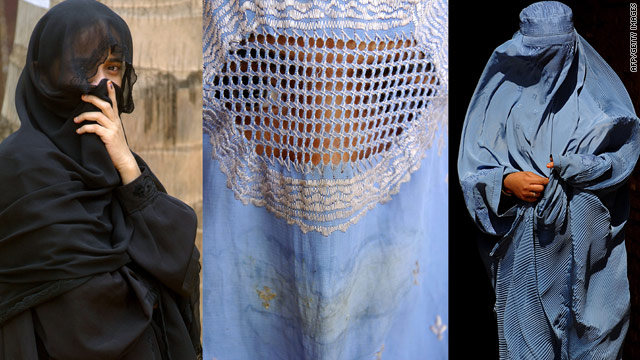Obviously it’s the native Italian woman protesting the Burka who will be jailed, not the Muslim immigrant male who attacked her.

 Until then, he can be satisfied that an Italian woman protesting the
Burka will be jailed, but not the Muslim immigrant who attacked her to
defend his right to abuse women with the Burka.
Until then, he can be satisfied that an Italian woman protesting the
Burka will be jailed, but not the Muslim immigrant who attacked her to
defend his right to abuse women with the Burka.

A Milan prosecutor has requested a one-month prison sentence and €100 fine for Daniela Santanchè, an ex-leader of the Movement for Italy party, now a faction of Silvio Berlusconi’s People of Freedom party, for organizing an anti-burqa protest in 2009 without permission.
Santanchè protested against the burqa as 3,000 Muslims gathered to celebrate the end of Ramadan at Milan’s La Fabbrica del Vapore, a cultural centre, in September 2009.
“I saw dozens of women walking around with this portable prison that is the burqa,” said Santanché.
Daniela Santanchè said that she went to see “in person” if Muslim women respected the “law of the Italian state” that they can not go in the street with their faces covered. And since that day she has seen “dozens in a burqa”, partook in a discussion with the men of the Muslim community who insulted her. “I’d gone there to tell them that the law must be respected.”
Santanchè, along with 12 other activists, reportedly asked women entering the building to “uncover their face”. She also called on Italian police to apply a law that has been in place since the 1970s forbidding any dress that hides a person’s face.
The protest provoked anger among the Muslim community, ending with an Egyptian man, Ahmed El Badry, assaulting Santanchè. El Badry was fined €2,000.
“Santanchè went at the end of Ramadan to remove the burqa,” said the Imam of Segrate. “Ramadan is an important holiday for one million Muslims in Italy, she has offended them,” he continued wishing that Santanchè burn in the “fire on the day of judgment”.


















